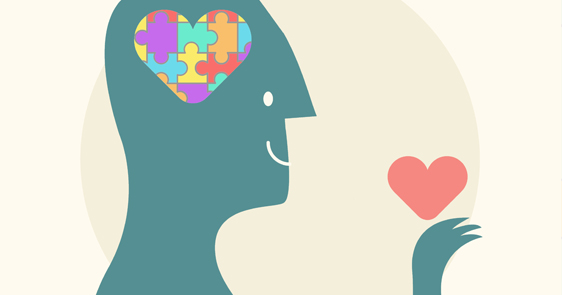Mental Health Awareness Week
Written by our ever amazing volunteer: Lenka Murova.
You might have noticed that conversations around mental health have been more prominent on social media recently. The annual #MentalHealthAwarenessWeek kicked off on Monday 14th of May this year, putting the emphasis on ‘stress’ and how we cope with it. People have been sharing their experiences of struggles and small victories with their mental health which is such an important part of making progress in helping to destigmatise mental health issues, to actually talking about them.
If you find yourself struggling, you might not even realise that it could be due to a mental health issue. I say this from personal experience as I’ve found myself having trouble being in crowds where I would feel like I was suffocating. I would lose motivation and would always find myself tired, not finding joy in the little things I used to. I thought that spontaneously bursting into tears and not being able to breathe seemingly without reason, was just me being overdramatic. So I ignored it, but it kept getting worse and worse and eventually, it felt like I was slowly suffocating.
Thankfully, as I am a child of the internet, I stumbled onto a blog that talked about mental health. I started reading about people’s experiences similar to mine and suddenly, I had a direction where to look for help. I went to see my first therapist when I was sixteen years old. I had no idea what I was doing, I was scared and thought I was making an embarrassing mistake. I am twenty three now and after years of not knowing what was wrong with me, I have words to describe what I can go through: anxiety and depression. Looking back, it should have been obvious but nobody around me has ever talked about this. The environment that I grew up in just made me feel useless and broken for not being able to just ‘get over it’.
So from my experience, raising awareness about mental health is nothing to scoff at. I simply didn’t know and had no idea that mental health was something that needed to be looked after. I thought that having a panic attack was normal for everyone (that or I was just weird). Being aware of your mental health is so important, because having to deal with these issues can be very isolating. After all – it’s just in your head, right? Talking about mental health issues, reading stories from others who struggle with it can all help at making people feel less alone.
Everyone has a unique experience with mental health and there is nothing wrong with asking for help when you think you need to. There are many resources out there that you can turn to. You can be sure of one thing, you are not alone, even if it often feels like it. Looking after yourself isn’t just about taking care of your physical health, it includes your mind as well.
Personally for me, it is important to be surrounded by people who care and understand, so I can build myself a support system. But I also understand that not everyone can have access to one which is why I love the opportunity to volunteer with LGBT Health and Wellbeing. I am so glad I can contribute in a small way to an organisation that focuses on supporting our community by providing a safe space where people can ask for help.
Just like anyone, I have good days and I have bad days, and I am learning to know how to ask for help when I need to. Well I’m trying, so I hope you give yourself the chance to try as well.
Useful resources:
- At LGBT Health and Wellbeing, we:
– run a helpline that is open every Tuesdays and Wednesdays, between 12 and 9pm: 0300 123 2523
– offer one-to-one meetings for people to find out more about mental health supports available and what services might best meet their needs
– offer counselling
– a programme of social events promoting positive mental health and wellbeing - The Mental Health Foundation has a comprehensive list of different resources and places you can contact to seek help.
- Campaign organisations like See Me Scotland and Scottish Association for Mental Health create great social media campaigns which people can take ownership of to raise awareness within their community.
- If you are looking for an interesting conversation and artistic expression that aims to destigmatise mental health, check out Scottish Mental Health Arts Festival and their wide variety of events across Scotland.
- There are also publications that work tirelessly to give voices and provide a platform for stories around mental health that often don’t feature in mainstream narratives:
– Marbles: an independent print magazine
– FearlessFemme: an online magazine for young femme and non-binary people


